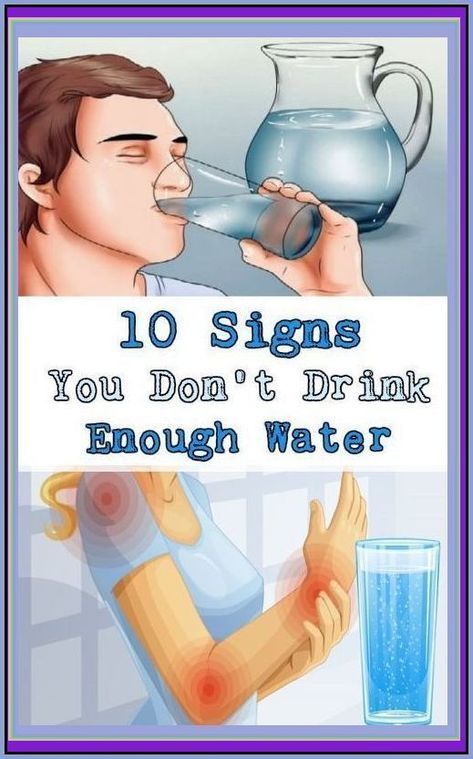ADVERTISEMENT
Water is essential for every function in your body. Yet, many people unknowingly live in a state of mild dehydration, which can take a toll on physical and mental health. Are you drinking enough water? Your body often gives clear signs when it’s running low on this life-sustaining liquid. Recognizing these signs early can help you stay healthy, energetic, and hydrated.
Why Staying Hydrated Is Important
Water makes up about 60% of your body weight, and it plays a critical role in functions like regulating temperature, flushing out toxins, and lubricating joints. Dehydration, even mild, can disrupt these processes and lead to a host of uncomfortable symptoms. Let’s explore the 10 tell-tale signs that you’re not drinking enough water.
1. Persistent Thirst
Feeling thirsty is your body’s first and most obvious sign of dehydration. If you find yourself constantly craving water, it’s a clear indicator that you’re not drinking enough throughout the day.
2. Dry Mouth and Bad Breath
A lack of water reduces saliva production, leading to a dry mouth. This dryness can create an environment for bacteria to thrive, causing bad breath. Staying hydrated ensures your mouth stays moist and fresh.
3. Fatigue and Low Energy
Water is crucial for maintaining energy levels. Dehydration slows down the circulation of oxygen and nutrients in your body, making you feel sluggish and fatigued. If you’re constantly tired despite a good night’s sleep, dehydration could be the culprit.
4. Dark-Colored Urine
The color of your urine is one of the easiest ways to gauge hydration. Light yellow or clear urine indicates proper hydration, while dark yellow or amber-colored urine suggests you need to drink more water.
5. Dry Skin
Water helps keep your skin hydrated and elastic. If your skin feels dry, flaky, or less supple than usual, it might be due to a lack of hydration. Drinking enough water can improve your skin’s appearance and health.
6. Frequent Headaches
Dehydration reduces the fluid surrounding your brain, which acts as a cushion and prevents it from hitting the skull. This lack of cushioning can trigger headaches. If you’re prone to migraines, dehydration might also worsen their frequency and intensity.
7. Constipation
Water is essential for smooth digestion and regular bowel movements. Without enough water, stools can become hard and difficult to pass, leading to constipation. Increase your water intake to support a healthy digestive system.
8. Muscle Cramps and Joint Pain
Water is vital for keeping joints lubricated and muscles functioning properly. Dehydration can lead to muscle cramps, stiffness, and joint discomfort, especially during physical activity.
9. Poor Concentration and Brain Fog
Even mild dehydration can affect brain function, leading to difficulty concentrating, forgetfulness, and mental fatigue. Staying hydrated helps improve focus, memory, and overall cognitive performance.
10. Increased Hunger
Sometimes, your body mistakes thirst for hunger, causing you to eat when you’re actually dehydrated. If you find yourself constantly snacking, try drinking a glass of water first to see if it alleviates your hunger.
Please Head On Over To Next Page
ADVERTISEMENT
